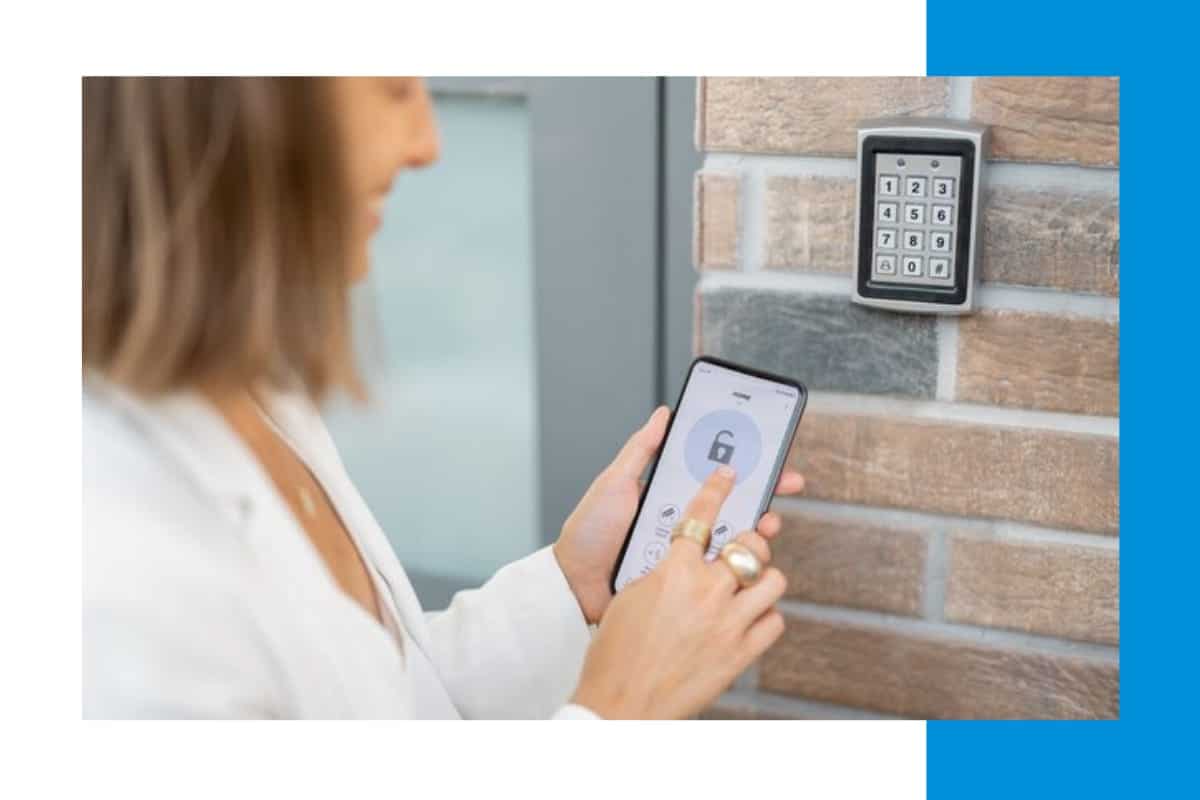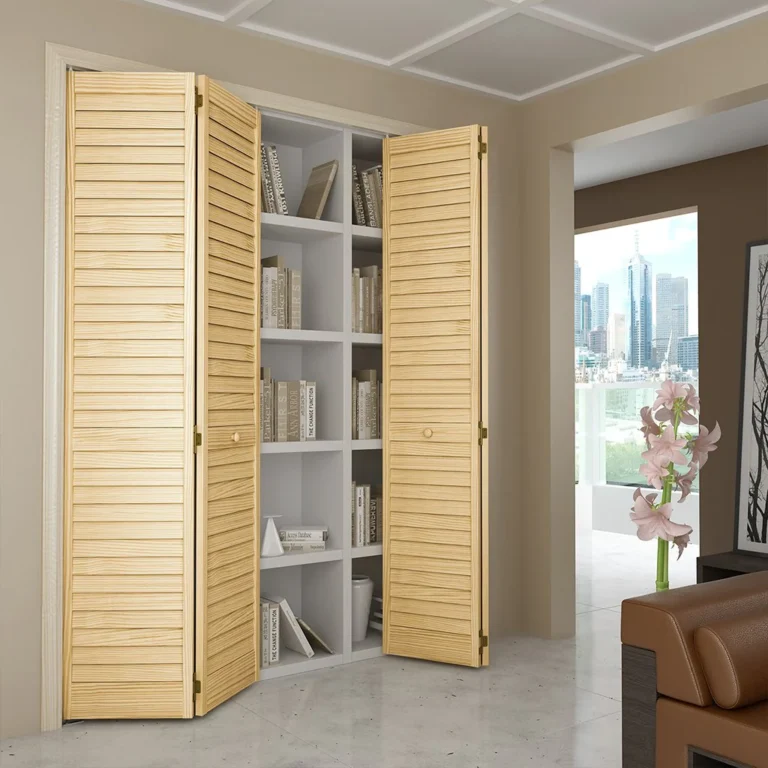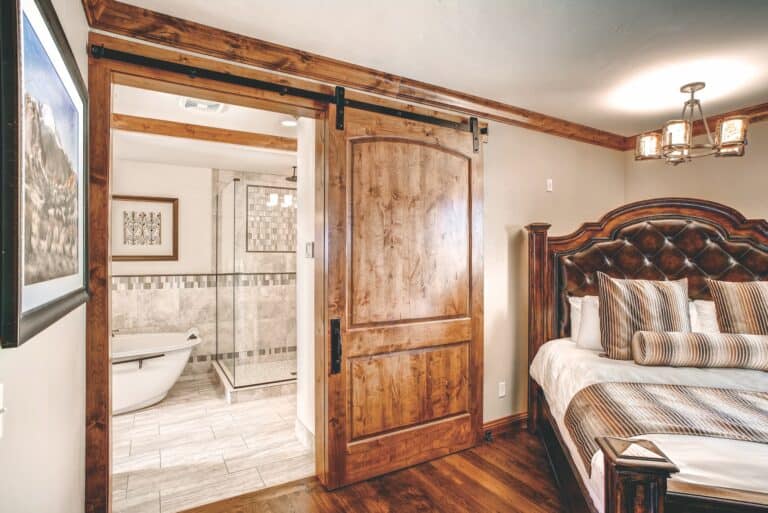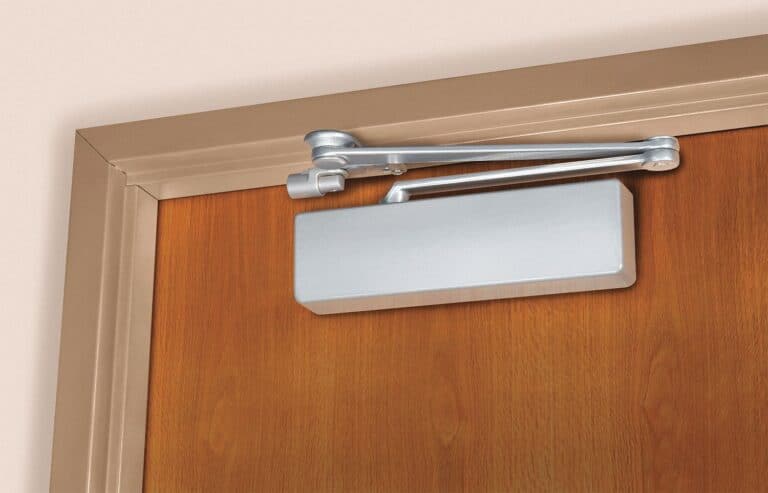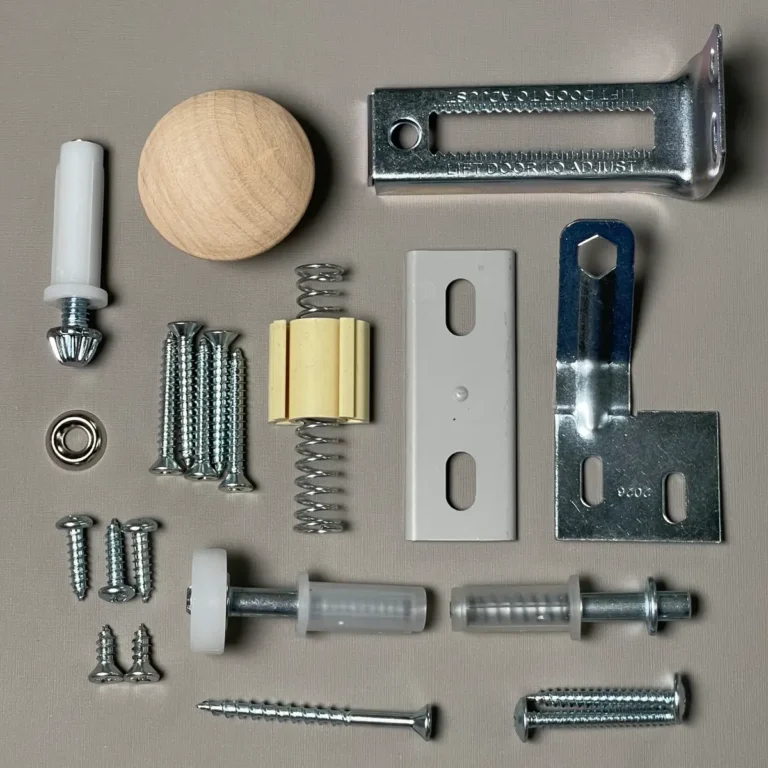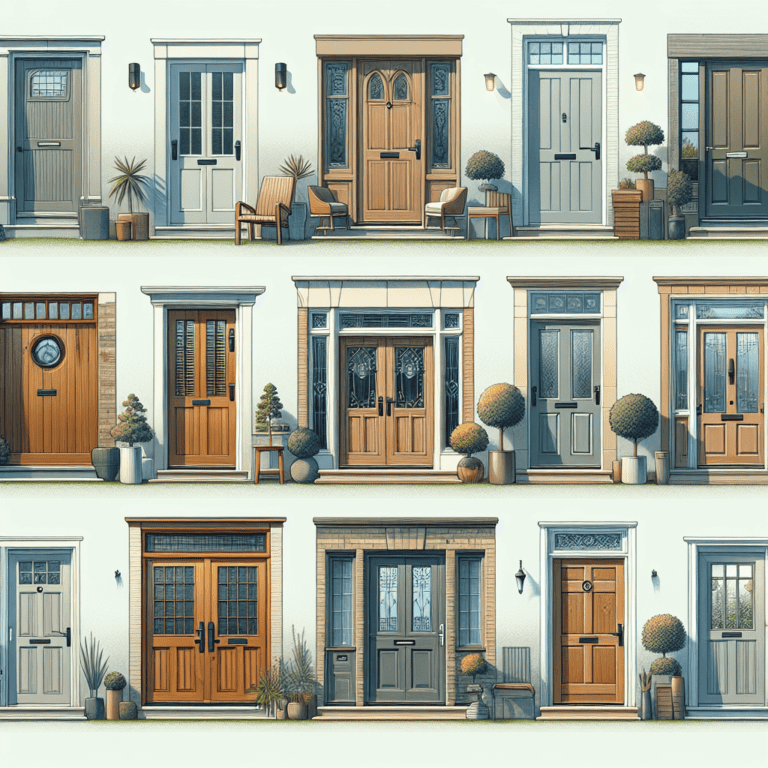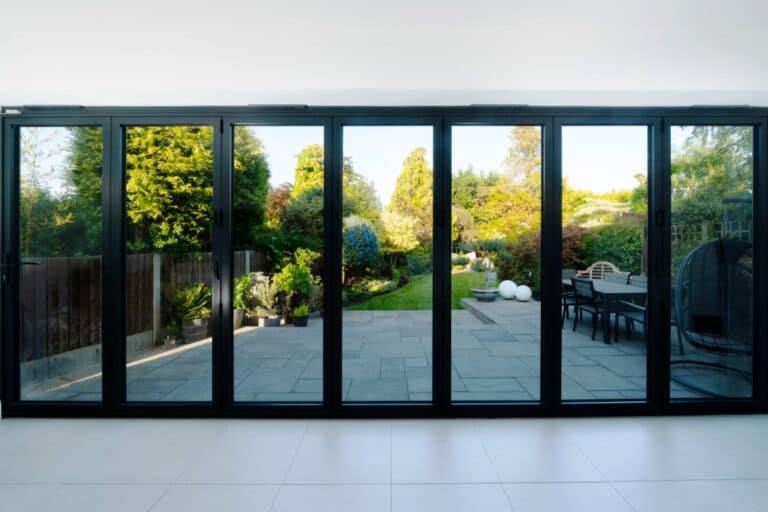Smart locks are revolutionizing the way we think about home security. Gone are the days of fumbling for keys or worrying about whether you locked the door on your way out. With a smart lock, you can secure your front door with just a tap on your phone or even a voice command.
When it comes to choosing the right smart lock for your home, two popular technologies often come up: Bluetooth vs Z-Wave Smart Locks. Both offer the convenience of keyless entry, but they work in very different ways. Your decision will depend on how you plan to use the lock, your budget, and your overall smart home setup.
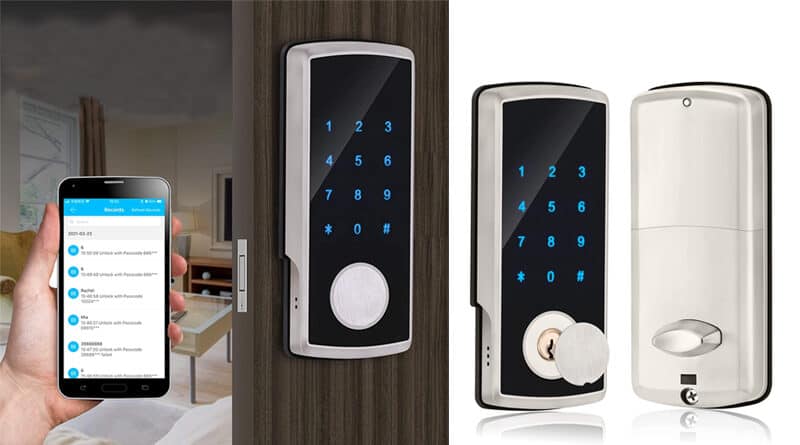
This article breaks down the pros, cons, and key features of each type of locks to help you make an informed decision. Whether you’re after simplicity or advanced smart home tech, we’ve got you covered. Let’s dive in!
What is a Smart Lock?
A smart lock is more than just a high-tech gadget for your home—it’s a blend of convenience and security. Unlike traditional locks, a smart lock uses technology to give you keyless entry, making it easier to secure your front entrance door without needing physical keys.
Smart locks can be controlled using your smartphone, apps, or even voice assistants like Alexa or Google Assistant. Depending on the type, they might connect via Bluetooth, Wi-Fi, or Z-Wave technology. Some models also integrate with other smart home devices, giving you a fully automated experience.
The best part? Smart locks aren’t just about unlocking your door remotely. They come packed with features like temporary access codes for guests, activity tracking, and even remote access to lock and unlock from anywhere. But not all smart locks are created equal, and that’s where understanding their technology—like Bluetooth or Z-Wave—becomes crucial.
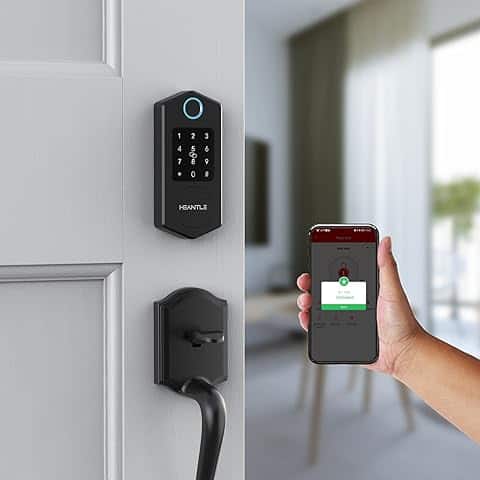
Smart Lock Protocols
Smart locks use various protocols to connect to your smart home devices. These include Bluetooth, Z-Wave, Wi-Fi, and the newer Matter standard. Each protocol is designed to cater to different needs, offering unique features and functionality.
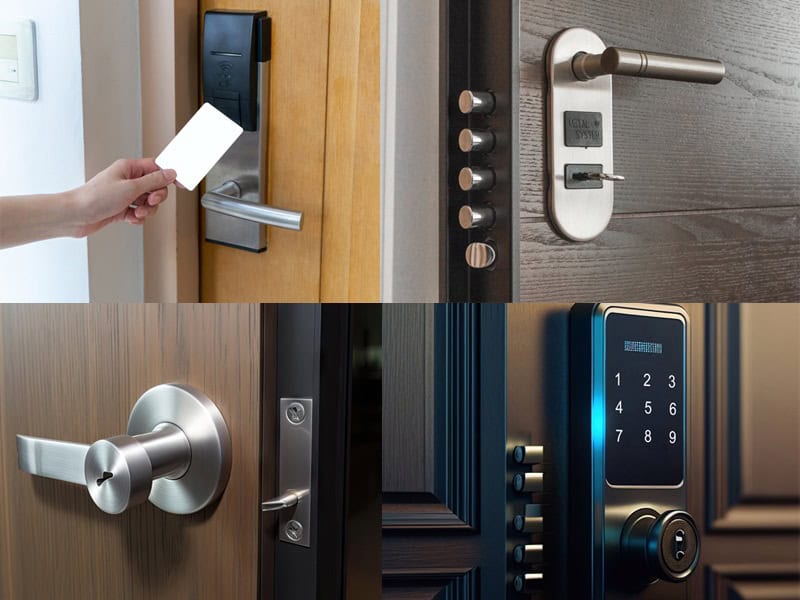
Why Protocols Matter
The protocol your smart lock uses determines how it communicates with other devices and the level of efficacy you’ll get. Here’s a quick overview of the most common protocols:
- Bluetooth: Ideal for simple, local control. It connects directly to your smartphone, making it perfect for those who don’t want to deal with hubs or Wi-Fi networks.
- Z-Wave: Known for its reliability and long-range connectivity via a mesh network. It’s great for integrating multiple smart device in your home.
- Wi-Fi: Offers direct remote access without additional hardware but may drain the battery faster than other options.
- Matter: An emerging standard aimed at unifying smart home ecosystems for broader compatibility.
Among these, Bluetooth vs Z-Wave Smart Locks are widely used and highly regarded. Each has its own strengths and trade-offs, making the choice between them important for creating the best smart home setups.
Bluetooth Smart Locks: Simple and Convenient
Bluetooth smart locks are a popular choice for homeowners who want a straightforward and reliable solution. These locks use Bluetooth to directly connect to your smartphone, allowing you to unlock your door without the need for traditional keys or additional hardware like hubs.
Key Features of Bluetooth Smart Locks
- Direct Connection: Bluetooth smart locks connect directly to your phone, eliminating the need for a Wi-Fi network or Z-Wave hub.
- Easy Setup: Installation is quick and simple. Most models don’t require complicated configurations, making them a great choice for beginners.
- Battery Life: Since Bluetooth operates within a limited range, it’s energy-efficient. This translates to longer-lasting battery life compared to some other smart locks.
- Keyless Entry: Enjoy the convenience of locking and unlocking your front door with just your phone.
Pros of Bluetooth Smart Locks
- Cost-Effective: Bluetooth locks are often more affordable than their Z-Wave counterparts.
- No Extra Hardware Needed: There’s no need for a hub or extra device, saving you money and effort.
- User-Friendly: Perfect for those who don’t want to deal with complex smart home setups.
Cons of Bluetooth Smart Locks
- Limited Range: Bluetooth locks work only within proximity (about 30 feet). You can’t lock remotely unless paired with additional hardware.
- Standalone Functionality: They offer limited integration with other smart home devices.
Bluetooth locks are an excellent choice for anyone seeking a simple and budget-friendly way to upgrade their home security. However, if you’re looking for advanced features or seamless smart home integration, you might want to explore Z-Wave smart locks instead.
Z-Wave Smart Locks: Advanced Integration for Smart Homes
If you’re diving into the world of smart homes, Z-Wave smart locks offer the perfect solution for a connected and automated setup. These locks use Z-Wave technology, a wireless communication protocol that operates on a mesh network. This allows Z-Wave locks to work seamlessly with other smart home devices, making them an excellent choice for advanced smart home setups.
Key Features of Z-Wave Smart Locks
- Mesh Network: Z-Wave creates a system where devices communicate with each other, extending the range and ensuring reliable connectivity.
- Remote Access: With a Z-Wave hub, you can lock remotely and control your door from anywhere using an app.
- Smart Home Integration: Z-Wave locks work well with other smart devices, such as cameras, lights, and thermostats, for a fully automated experience.
- Keyless Entry: Like Bluetooth locks, Z-Wave smart locks offer convenient keyless entry, controlled via a smartphone or voice assistants.
Pros of Z-Wave Smart Locks
- Extended Range: Thanks to the mesh network, Z-Wave locks have a much greater range than Bluetooth locks.
- Seamless Smart Home Integration: They work flawlessly with smart home devices, making them ideal for users with a Z-Wave hub.
- Reliable Signal: The Z-Wave connection ensures stable communication between devices, even in larger homes.
Cons of Z-Wave Smart Locks
- Higher Cost: Z-Wave locks typically cost more, and you’ll need a Z-Wave hub to unlock their full potential.
- Shorter Battery Life: Constant connectivity/internet connection to the mesh network may reduce battery life compared to Bluetooth locks.
- Complex Setup: Setting up a Z-Wave system requires more effort and technical know-how.
Ideal for Smart Homes
Z-Wave locks are designed for users who want to integrate their locks into a larger smart home setup. They provide unparalleled purpose, especially for those who need to control multiple device or lock remotely.
Bluetooth vs Z-Wave Smart Locks: Side-by-Side Comparison
Choosing between Bluetooth locks and Z-Wave smart locks can feel overwhelming, but a direct comparison makes the differences clear. Let’s break it down so you can decide which technology best suits your needs.
| Feature | Bluetooth Locks | Z-Wave Smart Locks |
| Connection | Direct to smartphone. | Requires Z-Wave hub for connectivity. |
| Range | Limited to ~30 feet. | Operates on a mesh network for extended range. |
| Remote Access | Only possible with additional hardware. | Full remote control via hub. |
| Integration | Minimal integration. | Fully integrates with smart devices. |
| Battery Life | Longer due to low power use. | Shorter due to constant connectivity. |
| Cost | Budget-friendly. | More expensive due to additional hardware. |
| Ease of Setup | Quick and simple. | Requires more time and a Z-Wave hub. |
Bluetooth vs Z-Wave smart locks: Which Lock is Right for You?
- Choose Bluetooth locks if you want a cost-effective, easy-to-install option for local control.
Still unsure? Let’s explore some key factors to consider before making your decision. Keep reading!
How to Choose the Right Smart Lock for Your Home
When deciding between Bluetooth vs Z-Wave Smart Locks, it’s essential to think about your specific needs and lifestyle. Here are some key factors to consider before making your purchase.
1. Your Smart Home Setup
- Simple Setup: If you don’t have other smart device or a connected system, a Bluetooth lock is a straightforward option.
- Integrated System: If you already have a Z-Wave hub or are planning to expand your setup, a Z-Wave smart lock is the better choice.
2. Connectivity Needs
- Local Control: Do you only need to lock and unlock your front door when you’re nearby? Bluetooth works well for this.
- Remote Access: If you want to lock remotely or control your lock from anywhere, a Z-Wave lock offers that efficacy through a Z-Wave hub.
3. Budget
- Cost-Conscious: Bluetooth locks are typically more affordable and don’t require extra hardware like a hub.
- Investment in Tech: Z-Wave locks are pricier, but they offer advanced features and seamless integration with multiple smart home device.
4. Battery Life
- Longer Battery Life: If you want a lock that lasts longer between battery changes, Bluetooth locks are the way to go.
- Power Tradeoff: Z-Wave locks may need more frequent battery changes because of their constant connection to the mesh system.
5. Key Features
- Keyless Entry: Both Bluetooth and Z-Wave locks offer keyless entry, but Z-Wave locks provide additional features like voice control and advanced automation.
- Guest Access: Need to provide temporary access codes? Check which models have this feature, as it can vary by brand.
6. Ease of Installation
- Quick and Easy: Bluetooth locks are ideal for those looking to upgrade without a lot of technical knowledge.
- More Complex Setup: Z-Wave locks require a hub and may take more time to install and configure.
Bluetooth vs Z-Wave Smart Locks: Who Should Choose Which?
- Bluetooth Smart Locks: Great for users who want a simple, cost-effective solution with basic efficacy.
- Z-Wave Smart Locks: Ideal for tech enthusiasts who want full remote control and integration with other smart devices in their home.
By considering these factors, you’ll be well on your way to finding the correct smart lock for your needs.
Conclusion
When it comes to securing your front door, both Bluetooth vs Z-Wave smart locks offer impressive features. The choice between them boils down to your specific needs, budget, and how connected you want your home to be.
If you’re looking for simplicity, affordability, and longer battery life, a Bluetooth lock might be all you need. It’s perfect for users who prefer a standalone solution without diving into advanced smart home setups.
On the other hand, if you’re building a fully connected smart home with multiple smart devices, a Z-Wave smart lock is the ultimate choice. With its ability to lock remotely, work within a mesh network, and integrate seamlessly with other Z-Wave technology, it’s ideal for anyone who values convenience and automation.
Both options provide keyless entry and enhanced security for your home, but only you can decide which aligns best with your lifestyle. Evaluate your priorities, think about how you’ll use the lock, and invest in the technology that makes your life easier.
At the end of the day, the correct smart lock isn’t just about technology—it’s about making your home smarter and safer in a way that fits your needs. Choose wisely, and enjoy the convenience of modern security!
Why It’s Worth Investing in a Smart Lock?
Smart locks, whether Bluetooth or Z-Wave, are game-changers in home security. They simplify daily life with features like keyless entry, remote access, and seamless integration with smart devices. Beyond the convenience, these locks provide peace of mind, allowing you to control and monitor access to your home effortlessly.
Still unsure? Here’s a quick takeaway to help you decide which one to choose between Bluetooth vs Z-Wave Smart Locks:
- Choose Bluetooth locks if you want an easy, budget-friendly solution for local control and simple operation.
- Choose Z-Wave smart locks if you need advanced features, reliable Z-Wave connection, and integration with other smart home devices.
Regardless of your choice, investing in the right smart lock will upgrade your home security and simplify your life. Remember, smart home technology is all about making everyday tasks more convenient while keeping your home safe.
FAQs: Bluetooth vs Z-Wave smart locks : Choosing the Right Smart Lock for You
What is the main difference between Bluetooth vs Z-Wave smart locks?
Bluetooth smart locks connect directly to your smartphone for short-range control, while Z-Wave smart locks require a smart home hub for broader connectivity and integration with other smart devices.
Which is better for remote access: Bluetooth or Z-Wave smart locks?
Z-Wave smart locks are better for remote access since they can integrate with hubs to control your lock from anywhere. Bluetooth smart locks typically require you to be within a close range for direct control unless paired with a Wi-Fi bridge.
Are Bluetooth smart locks easier to use than Z-Wave smart locks?
Yes, Bluetooth smart locks are simpler for standalone use because they don’t require additional hubs or devices. However, Z-Wave smart locks provide more advanced smart home integration features.
Which option is more secure: Bluetooth vs Z-Wave smart locks?
Both are secure, but Z-Wave locks often have additional layers of encryption for integration within a smart home system. Bluetooth smart locks rely on smartphone authentication, which is also highly secure when used properly.
